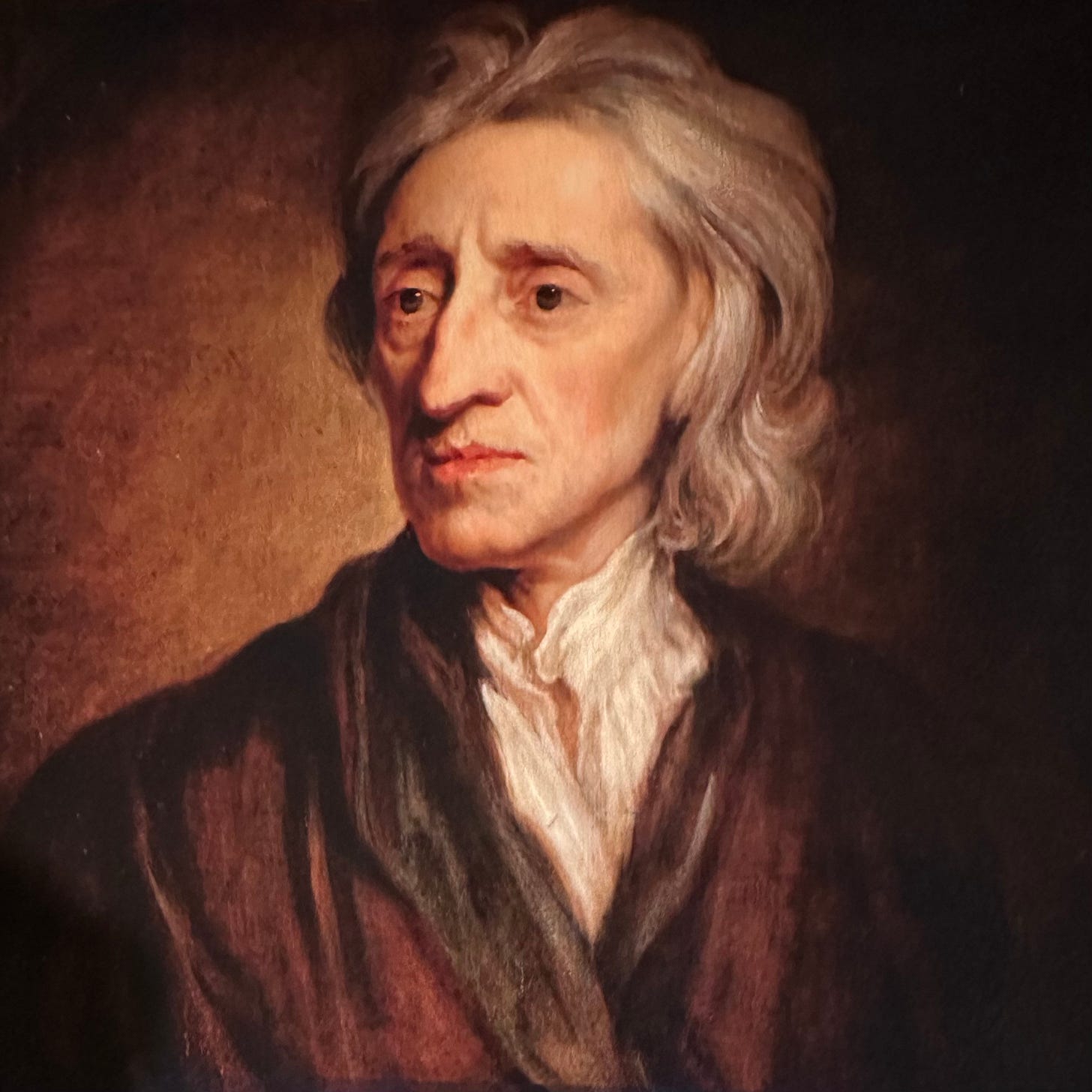John Locke’s Profound Influence on the Founding Fathers
John Locke, a 17th-century English philosopher, stands as a prominent figure whose ideas shaped the political philosophy of America's constitutional republic.
John Locke, a 17th-century English philosopher, stands as a prominent figure whose ideas shaped the political philosophy of America's constitutional republic. His concepts of natural rights, the social contract, limited government, the right to revolution, and religious tolerance deeply influenced the Founding Fathers as they crafted the Declaration of Independence, the U.S. Constitution, and the broader political framework of the United States.
John Locke (1632–1704) lived during a tumultuous era in English history, marked by the English Civil War (1642–1651) and the Glorious Revolution (1688). These events challenged the legitimacy of absolute monarchy and ignited debates about governance and individual rights. A physician by training and a philosopher by passion, Locke became a leading voice of the Enlightenment, a movement that prized reason, science, and personal liberty.
Locke’s seminal work, Two Treatises of Government (1689), rejected the divine right of kings and proposed that legitimate government stems from the consent of the governed. His ideas offered a blueprint for curbing state power and safeguarding individual freedoms — principles that would later captivate the American Founding Fathers amid their own struggles for independence.
Locke’s philosophy rests on several foundational concepts that revolutionized political thought:
Natural Rights: Locke argued that all individuals possess inherent rights to life, liberty, and property, granted not by rulers but by virtue of their humanity. Governments, he insisted, exist to protect these rights.
Social Contract: He proposed that governments derive their authority from a voluntary agreement among individuals — the social contract. If a government fails to protect citizens’ rights, the people may rightfully alter or abolish it.
Limited Government: Locke advocated for a government with power distributed across separate branches to prevent tyranny and ensure accountability.
Right to Revolution: He asserted that citizens have the moral authority to overthrow an oppressive government that violates the social contract.
Religious Tolerance: Locke believed the state should not meddle in matters of faith, advocating for freedom of conscience and the separation of church and state.
These ideas formed a cohesive framework that emphasized individual liberty and governmental accountability, laying the intellectual groundwork for our constitutional republic. The Founding Fathers — figures like Thomas Jefferson, James Madison, and Benjamin Franklin — found Locke’s philosophy compelling for several reasons:
First, there were striking parallels between Locke’s England and colonial America. Locke wrote during a time of resistance to monarchical overreach, much like the American colonies chafed under British rule, facing taxation without representation and other grievances.
Second, the Founding Fathers embraced the Enlightenment values Locke championed: reason, liberty, and the pursuit of happiness aligned with their vision for a new nation.
Third, Locke’s ideas offered a practical guide for designing a government that balanced authority and protected freedoms. His emphasis on checks and balances and the separation of powers provided a model to prevent the abuses they had endured under British governance.
Fourth, Locke’s social contract and right to revolution gave moral legitimacy to their break from Britain, framing the American Revolution as a justified response to tyranny.
Finally, Locke’s call for religious tolerance struck a chord with a fledgling nation composed of diverse religious communities, many founded by dissenters seeking freedom from persecution.
Locke’s impact is unmistakable in America’s foundational documents and political structures:
The Declaration of Independence, drafted by Thomas Jefferson in 1776, mirrors Locke’s natural rights philosophy. Its iconic phrase, “life, liberty, and the pursuit of happiness,” adapts Locke’s triad of “life, liberty, and property,” signaling that these rights are inalienable and must be safeguarded by government. The document also reflects Locke’s social contract theory, declaring that governments derive “their just powers from the consent of the governed” and that the people may “alter or abolish” a government that becomes destructive. This language provided both a philosophical foundation and a rallying cry for independence — they viewed their rebellion against Britain as a Lockean exercise of the people’s right to overthrow an oppressive regime.
The U.S. Constitution, drafted in 1787, embodies Locke’s principles of limited government and separation of powers. Its framework divides authority among the legislative, executive, and judicial branches, creating a system of checks and balances to prevent any single entity from dominating — a direct application of Locke’s ideas. The preamble’s assertion that the government is established “by the people” to “secure the blessings of liberty” echoes the social contract, emphasizing that legitimacy flows from popular consent. The Constitution’s provisions for amendments and elections further reflect a commitment to keeping government responsive to its citizens, aligning with Locke’s vision of accountability.
The First Amendment embodies Locke’s advocacy for religious tolerance by guaranteeing freedom of religion and prohibiting a state-established church. This protection ensured that the diverse faiths of the American populace could coexist without government interference, fulfilling Locke’s belief that matters of conscience lie beyond the state’s purview.
Locke’s influence extended beyond specific documents to the broader American political system. His ideas inspired a government structure that prioritizes individual rights and democratic participation. The separation of powers and checks and balances remain hallmarks of American governance, ensuring that power remains distributed and accountable. The right to revolution shaped the revolutionary ethos that birthed the nation and continues to inform debates about governmental legitimacy.
John Locke’s philosophy provided the intellectual bedrock for the American experiment. His ideas on natural rights, the social contract, limited government, the right to revolution, and religious tolerance offered the Founding Fathers both inspiration and a practical framework as they forged a new nation and his legacy endures in the Declaration of Independence, the U.S. Constitution, and the principles of liberty and governance by We The People which continue to define the United States.



